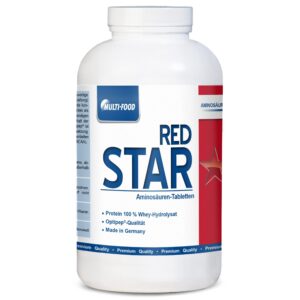ZINC + FERROUS ASCORBATE AND FOLIC ACID TABLETS
Zinc: Zinc is a metallic element that is essential for various physiological processes in the body. It is commonly used as a dietary supplement or as an ingredient in some over-the-counter medications and topical creams.
The primary use of zinc supplements is to treat or prevent zinc deficiency. Zinc deficiency can occur in individuals with certain medical conditions, such as malnutrition, gastrointestinal disorders, or those who have undergone gastrointestinal surgery. It is also used to support the immune system, speed up wound healing, and promote the growth and development of children.
The mechanism of action of zinc is not fully understood. However, it is known to play a crucial role in numerous enzymatic reactions and helps with the proper functioning of immune cells. It also acts as an antioxidant, protecting cells from damage caused by harmful free radicals.
The recommended daily dose of zinc varies depending on the age, sex, and specific health needs of an individual. For most adults, the daily dose typically ranges from 8-11 mg for women and 11-15 mg for men. Pregnant and lactating women may require higher amounts to meet the increased demand. It is important to follow the instructions on the product label or consult a healthcare professional for the appropriate dosage.
While zinc is generally safe when taken within the recommended doses, there can be certain side effects associated with its use. Common side effects include nausea, vomiting, diarrhea, stomach cramps, and a metallic taste in the mouth. In some cases, excessive zinc supplementation can lead to copper deficiency, impaired immune function, and decreased levels of HDL (good) cholesterol. Long-term, high-dose zinc supplementation should be done under the supervision of a healthcare professional to avoid potential complications. Additionally, zinc can interact with certain medications, so it is important to discuss its use with a healthcare provider before starting any new supplements.
Ferrous Ascorbate And Folic Acid Tablets: Ferrous ascorbate and folic acid tablets are a combination medication used for the treatment of iron deficiency anemia during pregnancy, lactation, and in women of childbearing age. This drug is also prescribed to individuals with iron deficiency anemia who cannot tolerate or have an inadequate response to oral iron preparations alone.
The mechanism of action of this drug involves two main components:
1. Ferrous ascorbate: It is a form of iron that helps in the production of red blood cells and hemoglobin. It supplies the necessary iron in a bioavailable form, making it easier for the body to absorb.
2. Folic acid: It is a type of B vitamin that is essential for the production of red blood cells. It helps in the synthesis of DNA and aids in the proper functioning of the central nervous system.
The recommended dose of ferrous ascorbate and folic acid tablets may vary depending on the severity of anemia and individual requirements. It is generally prescribed as one tablet per day, preferably after meals or as directed by a healthcare professional.
Some common side effects of ferrous ascorbate and folic acid tablets may include nausea, vomiting, constipation, stomach cramps, diarrhea, dark-colored stools, and a change in taste. Rarely, allergic reactions such as rash, itching, swelling, or difficulty breathing may occur. It is important to consult a doctor if any of these side effects persist or worsen.
Additionally, iron supplementation may cause black discoloration of teeth in pediatric patients, so caution should be exercised when administering this medication to children.
It is important to note that this drug should be taken as directed by a healthcare professional and should not be self-prescribed. If you have any specific concerns or questions about the use, dosage, or side effects of ferrous ascorbate and folic acid tablets, it is recommended to consult a doctor or pharmacist for personalized advice.

